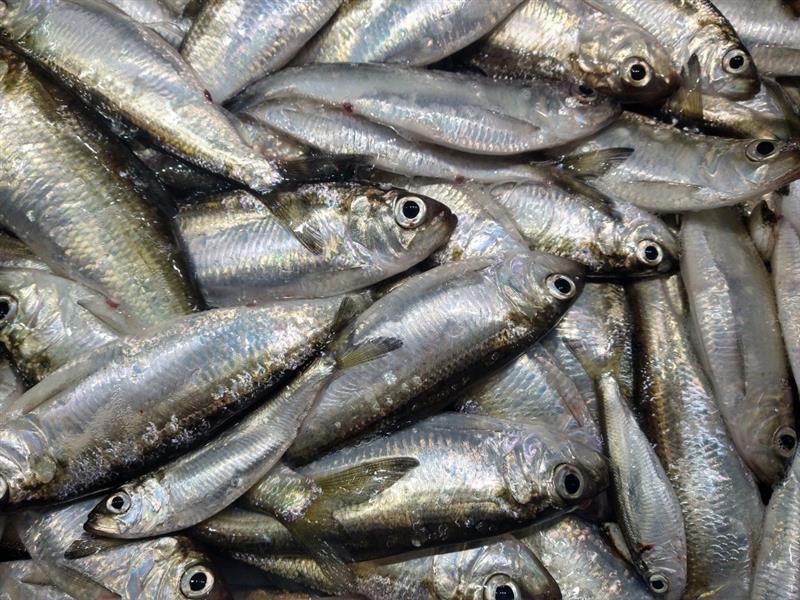New York Sea Grant will offer an update on the current state of alewife, a key forage fish supporting Lake Ontario's prized trout and salmon fishery, during a one-hour free event at 6:30 p.m. on Tuesday, Sept. 23, in 122 Shineman Center on the SUNY Oswego campus.
“They are the primary food source for trout and salmon in Lake Ontario, and are surveyed annually,” said New York Sea Grant’s Great Lakes Fisheries Specialist Stacy Furgal, who is based on the SUNY Oswego campus.
Since Lake Ontario’s fishery is a half-billion dollar industry, the state of the alewife is crucial to economic, ecological and recreational avenues.
The seminar, free and open to the public, will cover causes behind spring alewife die-offs, the latest findings from the lake-wide bottom trawl survey and time for questions and an open discussion.
The annual bottom trawl assessment –- conducted jointly by the United States Geological Survey, New York State Department of Environmental Conservation and Canadian partners with the Ontario Ministry of Natural Resources -- measures the health of the alewife population and factors into a larger equation about stocking levels and activities among various fisheries around the lake.
Furgal will host the discussion, with guest speaker Brian Weidel of the United States Geological Survey’s Tunison Lake Ontario Biological Station and a welcome from Lisa Glidden, director of SUNY Oswego’s Great Lakes Institute.
The overall state of alewives is key to the many fish that consume it but also a complicated piece of a crucial puzzle. While this year featured a more robust class of new alewives, these first-year fish are not large enough to enter their spawning age to repopulate and bolster the overall fisheries ecosystem.
Campus connections
Beyond having an office in the university’s Penfield Library, Furgal is pleased with all the opportunities to provide research opportunities and information to students, faculty, staff and the greater community.
“We’re very excited to tap into the partnership with the Great Lakes Institute to better leverage their resources to reach the campus and community,” Furgal said. “There are so many things happening with Great Lakes scientists.”
These include scientists on Oswego’s biological sciences faculty, including Nicholas Sard, who heads numerous projects supporting the sustainability of the Great Lakes basin that spans the northeast, and new faculty member Ellen Karboski. Furgal is also working with Tiffany Deater of cinema and screen studies on a project to promote understanding of fishing to a wider audience.
“It’s so wonderful to see the campus connect with the lake and the fisheries resources and to really foster those partnerships,” Furgal said. She especially praised Sard’s creativity, drive and dedication to providing student research opportunities.
Furgal's path to fisheries science truly started with projects as a college student, so Oswego providing hands-on experience in the field is one more strength for the university.
“We all work together to increase the visibility of fisheries research, and make that accessible for students and members of the community,” Furgal noted. “We’re happy to help students get their hands on real fish and experience fisheries science.”
Those interested in attending this presentation would include anglers, faculty and students looking to do related research, and community members interested in learning more about the lake and local fish populations.
“It will be technical science information, but conveyed in a way anybody can understand,” Furgal said. “We will have ample time set aside for questions.”
Those unable to attend will be able to access highlights of the presentation at a later date.
Furgal hopes to provide more seminars and discussions on related topics in the future.
For more information on this presentation, email Furgal at slf85@cornell.edu.




